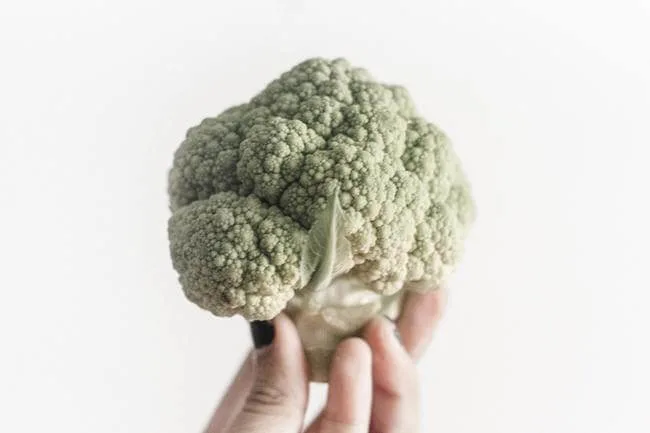
Have you noticed how much the overall budget you’re spending on groceries really is?
It might be a lot more than you think! And even though making every dollar stretch can be tricky, saving money on your weekly groceries is now a priority for many households.
In fact, for all families and households, food shopping is an essential cost, so it goes without saying that learning more money-saving techniques, is something that we should all strive to do.
Plus, believe it or not, there really are some tiny and small ways to make your grocery shopping trips fit within your budget.
You just need to know the little ins and outs to adjust the way you currently going grocery shopping, so that the process can become more seamless and, of course, affordable!
However, since eating a healthy balanced diet (while on a budget) can seem like it’s almost impossible, with a few hacks, you definitely can eat well for way less than you are spending.
Here are 21 simple ways to save just a little bit more money on your grocery bills.
Similar topics:
- 7 Highest Paying Photography Sites to Sell Your Photos Online
- 6 Smart Ways to Save Money at Home
- How to Attract MONEY Using These Four Techniques
Important Note!

Sometimes all you may need is to pick up a little job here and there to make a few extra bucks. So, if you would like to make money from home? Make sure to check out this reputable survey site called Survey Junkie. You can really get paid to take surveys. It’s super easy!
21 Ways To Save Money On Groceries In A Time Of Need

1. You must begin with a plan.
Having a grocery plan allows you to be prepared and productive while shopping for your food. When you spend a few hours a day preparing and thinking about what you’re going to buy, you’ll be less tempted to stray from your list.
Start by looking at the items on sale at your local supermarket and create food concepts with the ingredients on sale for that week.
In fact, if you have your shopping list so structured, and only have what you really need on there, you’ll make fewer trips to the supermarket and buy exactly what you planned.
2. Use apps.
There are a number of apps out there designed for the dedicated shopper. Some offer cash back rebates on items and others alert you to coupons and sales in your area.
Some even “clip” digital coupons that you can use at the register. So take advantage of these grocery apps when planning your next shopping trip. Price matching apps like reebee and Flipp can also help you save more money.
To find out more, check out these 8 genius apps to save money on food.
3. Don’t browse or shop when you are hungry.
“If you are hungry, going shopping can quickly lead to needless food expenditures that you may not normally afford”, says Shahzadi Devje, a registered dietitian and host of the Toronto-based Morrocco Real Food Adventure.
We generally invest more money in faster food conveniences, so if you can, shop when you are less vulnerable to choosing high-calorie, low-quality foods.
4. Join the savings club.
Most stores have a loyalty shopper program. It usually only takes a few minutes to sign up and gives you access to in-store discounts and coupons not available to the general public. Some stores even create special promotions just for you based on the items you buy most often. Others offer you discounts on other items, like gas, for shopping with them. So take advantage of your local grocery store’s customer loyalty program and sign up right away.
5. Buy generic.
When it comes to Name brand food items, they are simply more expensive and not necessarily better. And when it comes to things like prescriptions and over-the-counter drugs, buying generic makes much more sense since pharmaceuticals and medicines must meet high industry standards, so you can expect to get an effective product.
However, food can be a little more tricky. Generic cereal may not taste like the name brand, but staples like ketchup, rice, or flour can all be bought at a discount by buying generic.
6. Shop Frozen.
Did you know that the U.S. throws more than 38 million tonnes of food away every year?
Much of that food waste comes from spoiled food, you know, like the fresh spinach that you bought that spoiled two days later!
So one way to avoid throwing away your hard-earned money (through spoiled food) is to buy frozen. Many staple vegetables are available in the frozen food aisle. You can also buy meat in bulk and freeze them in smaller portions for easy meal planning. Take advantage of your freezer to save money.
7. Eat in-season.
If you would really like to save money on groceries, when the season’s turn, start to buy what’s in season at your grocery store.
In-season items are often abundant at the time they are harvested and that means they will be cost-effective than the other times throughout the year.
Your local farmer’s market is also a great place to see what’s fresh, local, and in season. You can get great deals on in-season produce from local farmers as well.
8. Meal plan.
If you haven’t started meal planning, now is a great time to start.
Your meal plan doesn’t have to be exhaustive, but a good outline of what you plan to have for breakfast, lunch, and dinner (for the week ahead) will help you pull together a list of items you need.
And since we know that the more often you’re in the store the more likely you are to spend more money, shop once for the whole week, and get everything you need to avoid buying frivolous food items and avoid having to make numerous shopping trips to pick up missing ingredients.
9. Use the bulk bins, bottom shelves, and outer aisles.
Bulk bins are a great place to pick up grains and cereals that you may want to try or only need in limited qualities. And since grocery stores usually put their pricier items at eye level. If you are looking for a great deal you may need to look down. The same is true for the outer aisles.
10. Avoid prewashed or repacked foods.
You could definitely buy a box of cookies, but be forewarned, that the prepackaged cookies may be more convenient, but you are paying for the convenience.
In the long run, it would be better to make your own. The same is true for spinach and salad greens. Prewashed greens sound convenient, but you can save a few dollars by washing your own salads.
11. Buy dried instead of canned.
Many people gravitate towards canned beans for convenience, but dried beans are a better value for your dollar. They keep just as well in the pantry and can be cooked in larger batches and frozen for later use.
12. Eat less meat.
When it comes to eating protein, meat is expensive. So learning a few meatless dishes to add to your weekly rotation will help stretch your grocery budget and maybe even shrink your waistline!
13. Use a calculator & add up all your unnecessary spending.
Impulse buying is a real problem for a lot of people. The treats on the ends of aisles and around the registers are tempting, and even more so if they are on sale.
To avoid this, use a calculator and tally up how much you are spending on all those little unnecessary food items. Can you really afford those sweet treats, three times a week?
Here are 8 more ways to prepare ahead & save money.
- Always make a grocery list with you to help you stick to your budget. You can learn more about why having a grocery list is vital to staying organized here!
- Eat leftovers for lunch the next day, or freeze your leftovers for extra meals.
- Shred your own salad and cheese and freeze them (did you know that cheese also freezes well too?!).
- Batch and wash your fruits and vegetables once a week. It speeds up plans for dinner and lunch and offers ready to go nutritious snacks.
- Organize your cupboards and drawers for extra food storage. If you don’t know what you have you’ll unnecessarily purchase more of the same. Here are 12 fantastic ways to organize your kitchen for more space here!
- Stock up, and watch expiry dates.
- Invest in a cookbook that excites you to create more home meals. If you have meals in mind to make at home, it’ll be far less tempting to indulge out at a restaurant.
- Clean the refrigerator and pantry once a month. Make sure nothing goes to waste and use what you purchased before you decide to buy more.
See, you can easily save more money on food. You just need to know a few simple techniques to improve the way you already shop and how to preserve the food you spend each month.
If you would also like to learn more tricks and tips to save even more money on groceries? check out the next article below!
See also:
Check out, 11 MORE Clever Ways to Save Extra Money on Groceries, next!
You may also like:
- 8 Grocery Apps That’ll Help You Save More Money On Food
- 6 Smart Ways to Save Money at Home
- How to Attract More MONEY Using These Four Techniques
Author: Everything Abode
Welcome to Everything Abode, your daily inspiration for every activity at home!
Our goal is to inspire you to live an elegant and chic lifestyle from the comfort of your home.
We’ll help you express yourself through authentic style, aesthetic beauty, and stylish home decor.
Subscribe to Get the Tools That Make My Blog Successful!

When you join my newsletter, I'm going to send you insider advice and tools that I use to grow my blog! I only save the BEST for my email list so don't wait!

